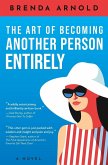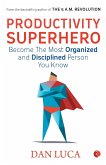Miss Amy took her evening nap before dinner, an hour at which Miss Susan could never sleep -- it was so odd; whereby Miss Susan took hers after that meal, just at the hour when Miss Amy was keenest for talk. Miss Susan, erect and unsupported, had feelings as to the way in which, in almost any posture that could pass for a seated one, Miss Amy managed to find a place in the small of her back for two out of the three sofa-cushions -- a smaller place, obviously, than they had ever been intended to fit.
Hinweis: Dieser Artikel kann nur an eine deutsche Lieferadresse ausgeliefert werden.
Hinweis: Dieser Artikel kann nur an eine deutsche Lieferadresse ausgeliefert werden.








